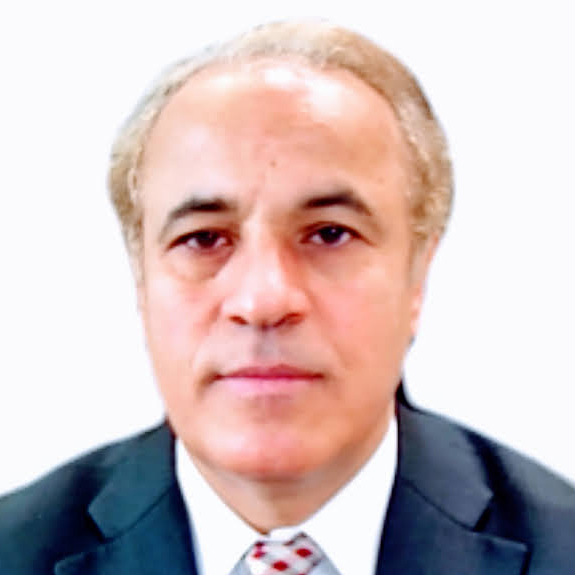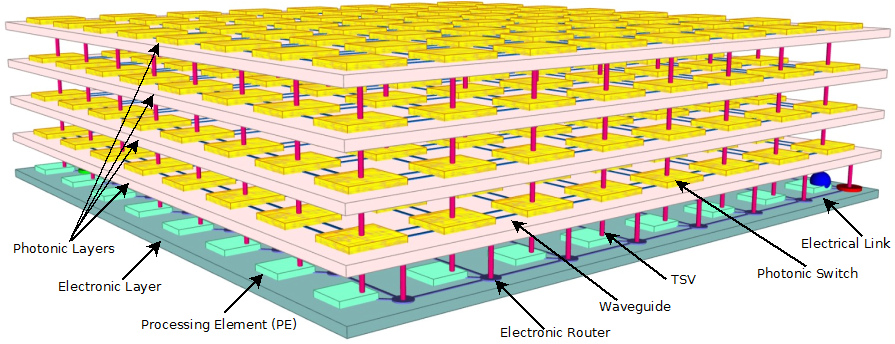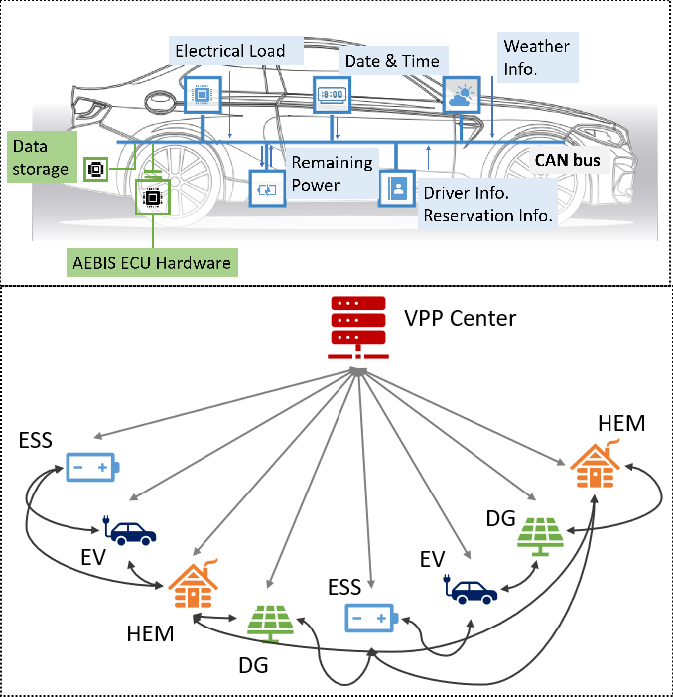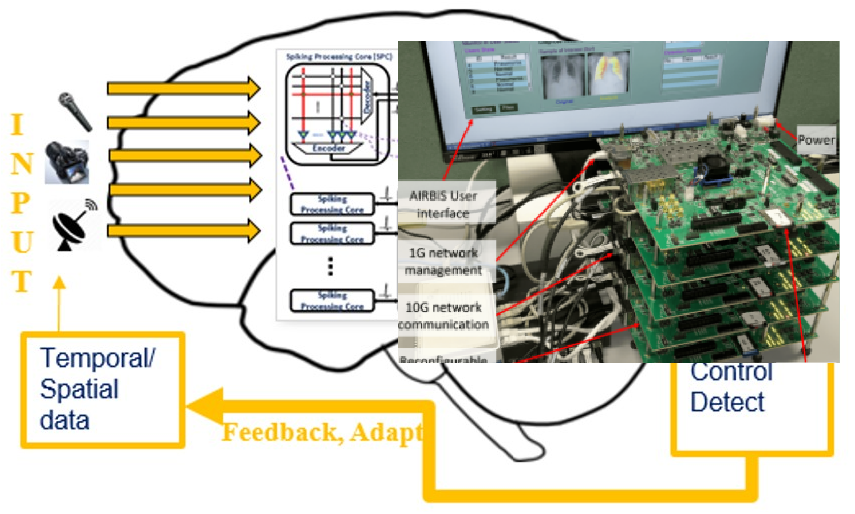
BEN ABDALLAH Abderazek
Professor, Regent (Dean of the Undergraduate school)
- Affiliation
- Department of Computer Science and Engineering/Division of Computer Engineering
- Title
- Professor, Regent (Dean of the Undergraduate school)
- benab@u-aizu.ac.jp
Education
- Courses - Undergraduate
- Computer Architecture, Undergraduate level, UoA, 2018 – present
- Introduction to Computer Systems, Undergraduate level, UoA, 2018 – present
- Parallel Computer Systems, Undergraduate level, UoA, 2018 – present
- Computer System Engineering, UoA, 2008-2018
- Embedded Systems, UoA, 2008-2016
- Logic Circuit Design Exercises, UoA, 2008-2018
- Computer Architecture Exercises, UoA, 2008-2018
- Courses - Graduate
- Neuromorphic Computing, UoA, 2023 – present
- Embedded Real-Time Systems, UoA, 2008 – 2022
- Multicore Computing, UoA, 2010-2015
- Advanced Computer Organization, UoA, 2008 – 2023
Research
- Specialization
-
Communication and network engineering
Computer system
High performance computing
Intelligent informatics
- Educational Background, Biography
-
- 1988.6 Graduated from the Lycée technique 9 Avril de Sfax, High School
- 1988.9-1994.6 B.S. in Electrical Engineering, Sfax Univ. & Huazhong Univ. of Science and Technology
- 1994.9-1997.6 M.S. in Computer Engineering, Huazhong Univ. of Science and Technology
- 1999.4-2002.3 Ph.D. in Computer Engineering, National Univ. of Electro-communications at Tokyo
- 2002.4-2007.3 Research Associate, National Univ. of Electro-communications, Tokyo
- 2007.4-2007.9 Assistant Professor, National Univ. of Electro-communications, Tokyo
- 2007.10-2011.3 Assistant Professor, UoA
- 2011.4-2012.3 Associate Professor, UoA
- 2012.4-2014.3 Senior Associate Professor, UoA
- 2014.4-present Professor, UoA
- 2014.4-2022.03 Head, Computer Engineering Division, UoA
- 2014.4-present Member, Education and Research Council, UoA
- 2022.4-present Dean, School of Computer Science and Engineering, UoA
- 2022.4-present Regent, The University of Aizu
Invited Lecturer:- 2010-2013 Visiting Professor, Department of Computer Science and Engineering, Hong Kong University of Science and Technology, Hong Kong, China
- 2011-2015 Visiting Professor, School of Software Engineering, Huazhong University of Science and Technology, Wuhan, China
- 2022 - present Lecturer, Graduate School of Science and Technology, Kyoto Institute of Technology, Kyoto, Japan
- 2023 - present, Tokyo University of Foreign Studies, Tokyo, Japan
- Current Research Theme
- Groundbreaking contributions in designing and optimizing energy-efficient, high-performance computing systems, particularly targeting digital signal processing workloads with compute, network and high-availability constraints.
- Key Topic
- Computer Systems (processor micro-architecture, Embedded Systems, energy efficiency)
- Neuromorphic Computing (energy efficiency, scalability, anthropomorphic robots)
- Emerging Interconnect Technologies (Photonics, Three dimensional, Hybrid)
- Reliability of Integrated Circuits and Systems (thermal management, environmental factors, soft/hard errors)
- Affiliated Academic Society
- IEEE Senior Member; ACM Senior Member; Member of IEEE Circuits and Systems; Member of IEEE computer society Technical committee on computer architecture; Member of the European Alliance for Innovation; member of IEICE (2007-2019)
Others
- Hobbies
- Reading and visiting historical places
- School days' Dream
- To become a school teacher!
- Motto
- Simple is the best!
- Favorite Books
- " You Can Heal Your Life "
- Messages for Students
- For success in your education and research, maintaining focus and organization is essential.
Main research
- Emerging Interconnect Technologies (Photonics, Three dimensional, Hybrid)
-
Complex SoCs contain dozens of components made of processor cores, DSPs, memory, accelerators, and I/O, all integrated into a single die area of just a few square millimeters. Such complex systems will be interconnected via a complex on-chip interconnect closer to a sophisticated network than current bus-based solutions. This network must provide high throughput and low latency while keeping area and power consumption low. Our research effort is about solving several design challenges to enable such new paradigm in massively parallel many-core systems. In particular, we are investigating fault-tolerance, 3D-TSV integration, photonic communication, low-power mapping techniques, and low-latency adaptive routing.
...read more
- Green Computing
-
Our research is dedicated to the design and utilization of computers with minimal environmental impact, encompassing efforts to reduce energy consumption, minimize waste, and employ sustainable materials. By integrating cutting-edge technologies and innovative methodologies, we aim to develop solutions that not only enhance the efficiency and functionality of computing systems but also contribute to the preservation of our planet. Our multidisciplinary approach involves collaboration with companies and experts in various fields, ensuring that our findings and implementations are both practical and impactful.
...read more
- Neuromorphic Computing
-
We are exploring the development of an adaptive ultra-low power neuromorphic chip (NASH) and systems, enhanced by our previously developed fault-tolerant three-dimensional on-chip interconnect technology. The NASH system boasts several features, including an efficient adaptive configuration method that enables the reconfiguration of various SNN parameters such as spike weights, routing, hidden layers, and topology. Additionally, the system incorporates a blend of different deep neural network topologies, an efficient fault-tolerant multicast spike routing algorithm, and an effective on-chip learning mechanism. To demonstrate the performance of the NASH system, we will develop an FPGA implementation and establish a VLSI implementation. The ultimate goal of NASH is to bring brain-inspired processing technology to small-scale embedded sensors and sensor-based devices, such as BCI (EEG/EMG), audio, presence detection, and activity recognition.
...read more





